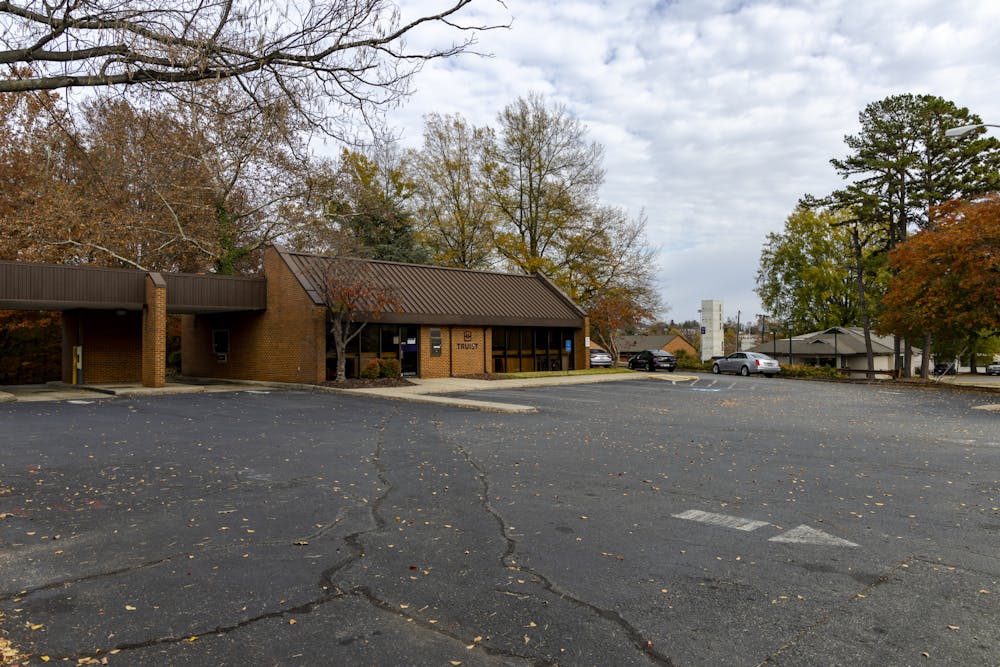Charlottesville City Council deferred the vote to approve a new 10-story apartment building proposal at 2117 Ivy Rd. in Monday’s meeting — which dragged on from 4 p.m. to around midnight. Council members unanimously decided to push the decision to the next meeting due to concerns regarding traffic safety and the scale of the building.
The proposal requested to rezone the property from “urban corridor” to a “planned unit development,” a change required for construction of the new apartment building. Prior to the unanimous approval by the Planning Commission last month, the University wrote a letter opposing the development saying that it does not align with the existing design of the Ivy Road area — a location adjacent to Grounds.
In Monday’s meeting, Council member Brian Pinkston said he does not think the Council should approve the first proposal of the space. He requested that the applicants have more discussions with the University to consider how the building fits into housing and density within the area. Pinkston is also employed by the University.
“We want the University to be a good neighbor to us, we need to be a good neighbor to the University,” Pinkston said.
The proposed apartment complex would include 242 units housing up to 600 people, targeted towards students due to its proximity to Grounds and the University's upcoming Ivy Corridor projects.
The University owns several properties along Ivy Road and is currently constructing multiple new buildings in the Ivy Corridor across the street, including the School of Data Science, the Karsh Institute of Democracy and a hotel and conference center.
University Architect Alice Raucher said during the meeting that the University is not against development in the city as a whole. She said the University is committed to being part of the solution to end the area’s affordable housing crisis, which has resulted in rising prices in recent years.
“U.Va. does not wish to dictate what can and cannot be built,” Raucher said. “Others have attempted to mischaracterize both the University's position on these specific proposed developments and our values as a member of the Charlottesville community.”
Raucher asked that the Council consider the scale of the proposal and its potential effect on those in the immediate surroundings. She acknowledged other member’s comments made about the scale of the University’s hotel and conference center — which are set back from the street to mitigate their height — in contrast to surrounding buildings.
Several community and Council members voiced safety concerns over the steep curve of Copley Road, the proposed entrance to the apartment’s parking lot. Charlottesville Mayor Lloyd Snook said he was worried about the blind entrance, though applicant representative Valerie Long said the entrance meets site distance requirements in place.
“We’re constrained in what we can do,” Long said, referencing how the bridge goes over the railroad so the road cannot be widened.
Matthew Gillikin, co-chair of Livable Cville, acknowledged the challenging set of tradeoffs with the proposed development but said the complex would help the city meet its housing goals in several ways.
“We get housing for students, we will get housing for families and surrounding low density neighborhoods, and we will get a bunch of designated affordable housing if these are approved,” Gillikin said. “It’s a win-win-win.”
Livable Cville, a local organization focused on advocating for affordable housing and sustainable transportation, published their own letter in November voicing support for the proposed structure.
Another similar housing proposal, a 12-story, 1,500-unit apartment building on Stadium Road called the “Verve,” was also discussed at the meeting, with a final decision deferred. Instead, they requested that developers reach out to the University with changes before the next City Council meeting, which will take place Dec. 18.







